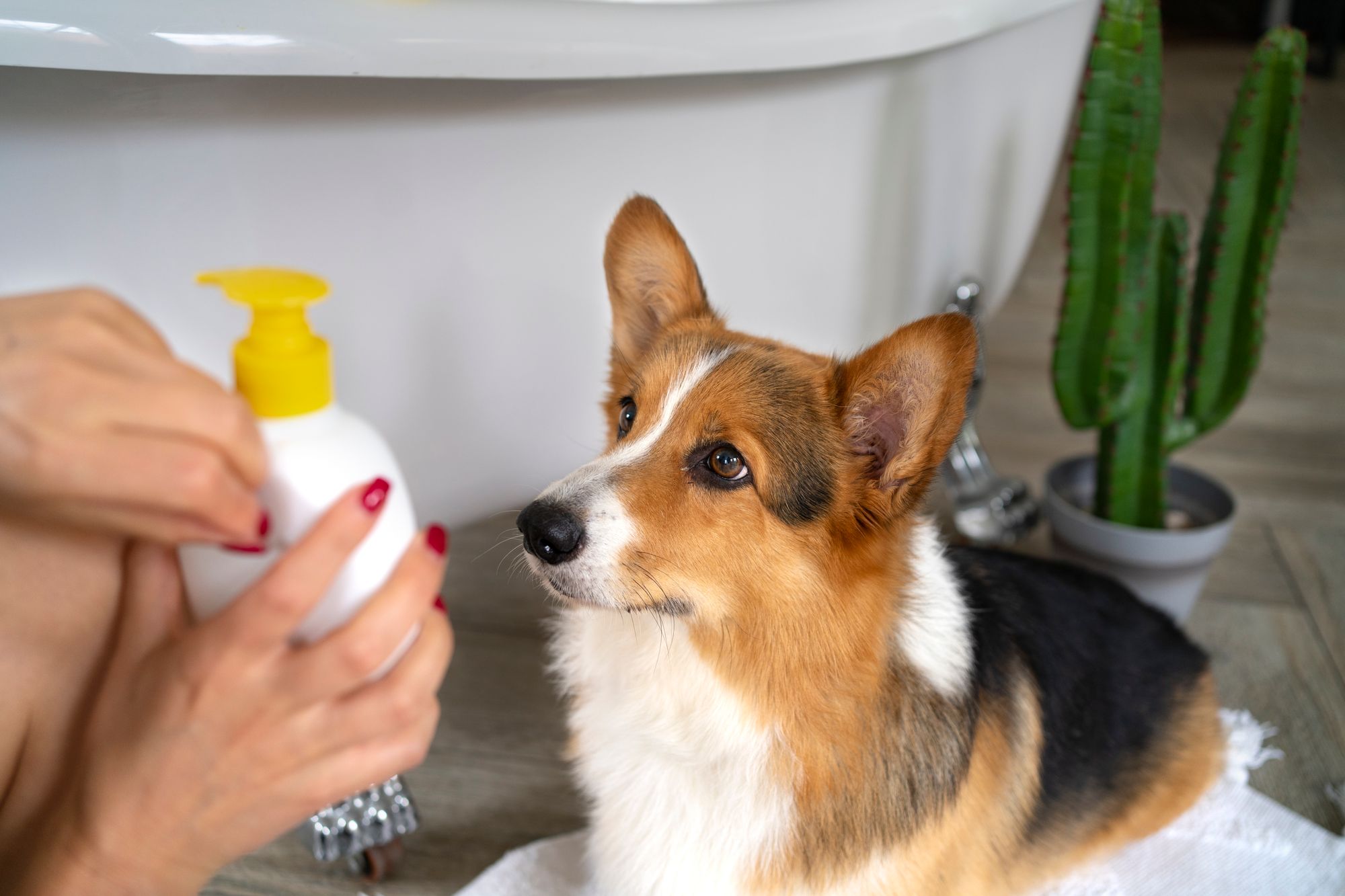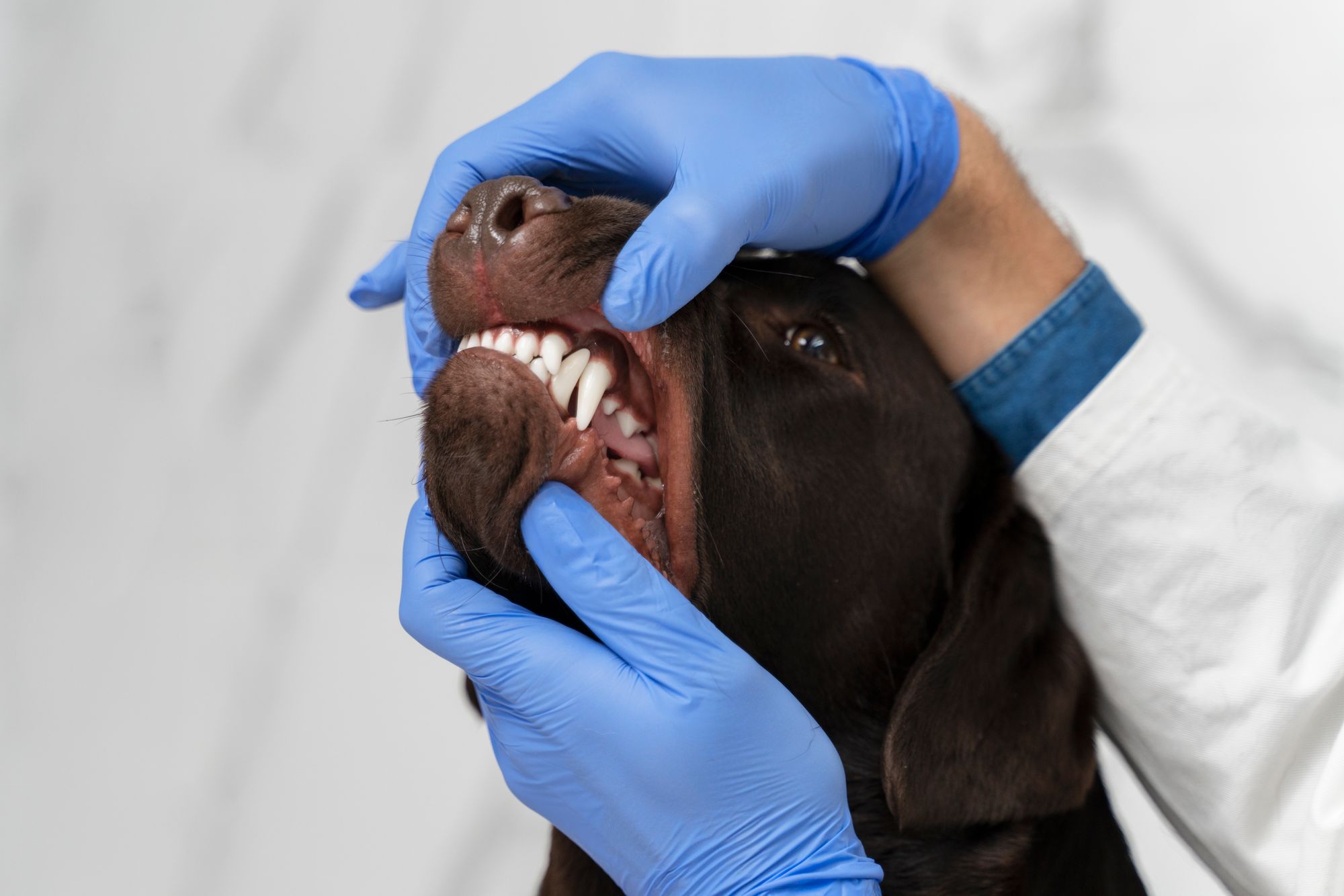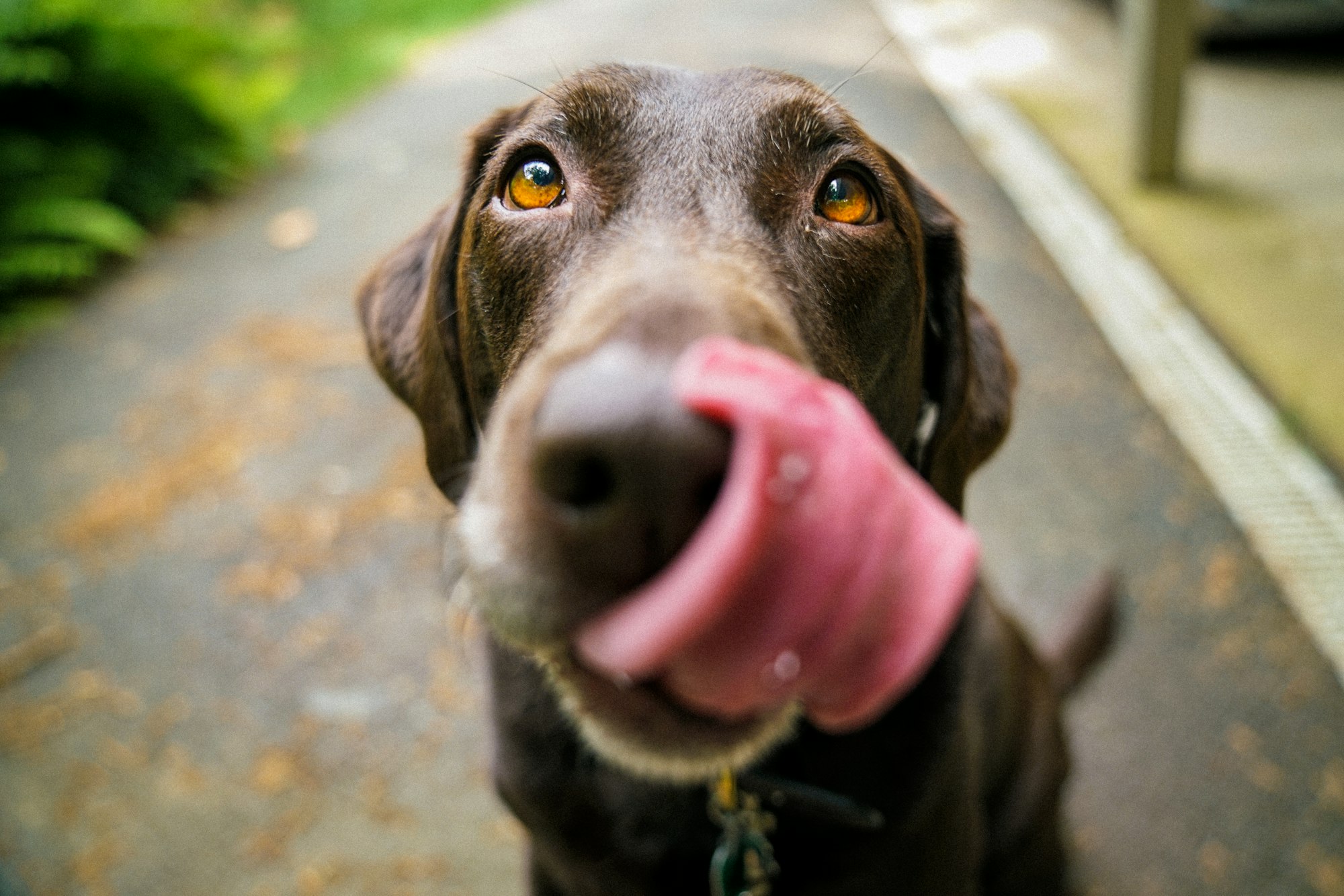
Have you ever wondered if a dog's mouth is cleaner than a human's? It's a common question among pet owners and curious individuals. Dogs and humans have different oral health needs and practices, but let's explore the bacterial composition, factors influencing oral health, and whether the notion of a cleaner dog's mouth holds any truth.
Understanding Bacteria in Dogs' and Humans' Mouths
When it comes to oral health, understanding the bacteria present in dogs' and humans' mouths is essential. Both species have unique bacterial compositions that contribute to their overall oral health. Let's explore the different types of bacteria and how oral health differs between dogs and humans.
1. Different Types of Bacteria: Bacteria play a significant role in oral health. In dogs and humans, the mouth is home to various bacteria, including beneficial and harmful ones. These bacteria perform different functions, such as breaking down food particles and protecting against pathogens.
However, the specific types of bacteria present can vary between dogs and humans. Research has shown that dogs and humans have distinct bacterial compositions in their mouths. Factors like saliva pH, bacterial load, and the overall oral environment contribute to these differences.
2. Oral Health in Dogs: Maintaining good oral health is crucial for dogs' overall well-being. Dogs have a unique oral environment, which affects their bacterial composition. For instance, dogs have more alkaline saliva compared to humans, which can influence the growth of certain bacteria. Dental diseases, such as gum inflammation and periodontal disease, are common in dogs. These conditions can lead to discomfort, pain, and even tooth loss if left untreated. Regular veterinary check-ups and appropriate dental care practices are vital for promoting good oral health in dogs.
3. Oral Health in Humans: In humans, oral health is influenced by various factors, including diet, oral hygiene practices, and overall health. Humans have a more acidic environment in their mouths compared to dogs, which can impact bacterial growth and composition. Proper oral hygiene practices, such as regular brushing, flossing, and dental check-ups, are essential for maintaining good oral health in humans. These practices help prevent dental issues like cavities, gum disease, and bad breath.
Understanding the differences in oral health between dogs and humans can help pet owners and individuals prioritize the specific needs and care required for their oral well-being. By adopting proper oral hygiene practices and seeking professional dental care when needed, both dogs and humans can enjoy healthier mouths and overall better health.
Comparing Bacterial Composition
When it comes to oral health, the bacterial composition in the mouths of dogs and humans plays a significant role. While both species have bacteria in their mouths, the specific types and abundance of bacteria can vary. Let's explore how the bacterial composition in dogs' and humans' mouths compares.
1. Saliva and Bacterial Load
Saliva is an essential factor in oral health as it helps cleanse the mouth and maintain a healthy balance of bacteria. Dogs produce less saliva compared to humans, which can impact the bacterial load in their mouths. Human saliva contains enzymes that aid in breaking down food particles and fighting off harmful bacteria. Due to the difference in saliva production, the bacterial load in dogs' mouths may be different from that in humans. However, it's important to note that a higher bacterial load does not necessarily mean poor oral health. The specific types of bacteria present and their interactions play a more significant role.
2. Bacterial Species and Diversity
Research has shown that dogs and humans have distinct bacterial species and diversity in their mouths. The types of bacteria and their abundance can vary between the two species, contributing to differences in oral health. While dogs have their own unique set of oral bacteria, humans also have a diverse range of bacterial species in their mouths. Factors like diet, oral hygiene practices, and overall health can influence bacterial composition in humans.
Similarly, factors like the dog's diet, chewing habits, and oral hygiene practices implemented by their owners can impact the bacterial composition in dogs. It's worth noting that maintaining a diverse and balanced oral microbiome is crucial for oral health in both dogs and humans. Certain bacteria are beneficial and contribute to a healthy oral environment, while others may be associated with dental diseases.

Understanding the differences in bacterial composition between dogs and humans helps us recognize the unique oral health needs of each species. By implementing appropriate oral care practices, such as regular brushing, professional dental cleanings, and a balanced diet, we can promote a healthy oral microbiome for both dogs and humans, leading to better overall oral health.
Factors Influencing Oral Health
Maintaining good oral health is critical for both dogs and humans. Various factors can influence the condition of their mouths and overall oral well-being. Let's explore some of the key factors that impact oral health in dogs and humans.
Diet and Chewing Habits
Diet plays a significant role in oral health for both dogs and humans. Dogs primarily consume wet or dry dog food, while humans have a more diverse diet. The texture and composition of food can affect the health of teeth and gums. For happy dogs, chewing habits are crucial. Gnawing on bones or appropriate chew toys can promote dental health by helping remove plaque and tartar buildup. It stimulates the gums and exercises the jaw muscles. In contrast, humans should limit their intake of sugary and acidic foods, as they can contribute to tooth decay and gum disease.
Oral Hygiene Practices
Proper oral hygiene practices are essential for maintaining good oral health in dogs and humans. Humans have more advanced oral hygiene practices compared to dogs. Regular brushing with a toothbrush and toothpaste, along with flossing and using mouthwash, helps remove plaque, prevent cavities, and maintain healthy gums.
For dogs, owners play a crucial role in implementing oral hygiene practices. Regular brushing of their teeth with pet-friendly toothpaste helps control plaque and freshens their breath. Additionally, specific dental treats or toys designed to promote oral health can be beneficial for dogs.
Veterinary and Dental Care
Regular veterinary and dental check-ups are necessary for both dogs and humans. Veterinarians can assess a dog's oral health, detect any issues early on, and provide appropriate treatment or dental cleanings when necessary. Similarly, humans should visit their dentist regularly for check-ups, cleanings, and professional assessments of their oral health. Dental professionals can identify and address any dental problems, offer preventive care, and guide on maintaining good oral hygiene practices.
Overall Health and Habits
Overall health and habits also influence oral health. In both dogs and humans, factors such as smoking, certain medical conditions, medications, and hormonal changes can impact oral health. It's essential to be aware of these factors and seek appropriate professional advice to mitigate any potential risks.
By considering these factors and implementing proper dental care, hygiene practices, and regular check-ups, both dogs and humans can maintain optimal oral health. Taking care of our oral health not only promotes healthy teeth and gums but also contributes to overall well-being.

Bacterial Transfer and Zoonotic Diseases
Bacterial transfer can occur between dogs and humans through activities like sharing food, close contact, or exposure to saliva. While some bacteria are species-specific, meaning they only affect one species, others can be zoonotic. Zoonotic diseases are those that can be transmitted between animals and humans, potentially causing infections or diseases.
It's important to understand that not all bacteria in a dog's mouth are harmful to humans. Dogs have their own set of bacteria that are generally harmless to humans. However, certain bacteria present in a dog's mouth can cause infections or illnesses if they enter a human's body.
To minimize the risk of bacterial transfer and zoonotic diseases, it's advisable to practice good hygiene and take necessary precautions. Here are some guidelines to follow:
1. Wash your hands thoroughly with water after handling a dog, especially before eating or touching your face.
2. Avoid allowing dogs to lick your face or directly share food with them.
3. Keep surfaces clean and regularly disinfect areas that come into contact with a dog's saliva, such as puzzle toys or food bowls.
4. If you have an open wound or compromised immune system, take extra precautions and consult a healthcare professional if needed.
5. Seek veterinary care for your dog to ensure they are healthy and free from any potentially infectious diseases.
By following these guidelines, you can reduce the risk of bacterial transfer and zoonotic diseases between dogs and humans, promoting the well-being of both.
Dispelling Myths: Is a Dog's Mouth Cleaner?
The belief that a dog's mouth is cleaner than a human's mouth is a popular myth. It is often based on observations of dogs licking their wounds or engaging in oral hygiene behaviors. However, it's required to understand the context and scientific facts surrounding this myth.
1. Understanding the Myth
The myth of a cleaner dog's mouth stems from the misconception that the bacteria present in a dog's mouth have some magical properties that promote wound healing or oral cleanliness. While it's true that some bacteria in a dog's mouth have natural antimicrobial properties, it doesn't mean that their mouths are inherently cleaner than humans'.
2. Debunking the Myth
Scientific studies have shown that both dogs and humans have bacteria in their mouths, and the bacterial composition can vary. However, comparing cleanliness based solely on bacteria is oversimplifying the concept of oral health. Factors like oral hygiene practices, dental care, and overall health contribute to oral cleanliness in dogs and humans. Humans have developed advanced oral hygiene practices, such as brushing, flossing, and using mouthwash, which help maintain oral health. Dogs, on the other hand, rely on their owners to implement oral care practices, such as regular brushing or using dental treats.
Furthermore, each species has different oral environments, bacterial compositions, and natural defense mechanisms. The presence of certain bacteria in a dog's mouth does not make it inherently cleaner or healthier than a human's mouth.
In conclusion, the myth of a dog's mouth being cleaner than a human's mouth lacks scientific support. Dogs and humans have different oral environments and bacterial compositions. Maintaining good oral health requires proper dental care, hygiene practices, and regular veterinary or dental check-ups for both dogs and humans alike.

Maintaining Good Oral Health for Dogs and Humans
1. Dental Care for Dogs
To maintain good oral health in dogs, regular veterinary check-ups, teeth brushing with pet-friendly toothpaste, and providing appropriate dental chews or toys can be beneficial. These practices help prevent dental diseases and promote overall well-being.
2. Dental Care for Humans
Humans should prioritize their oral health through routine brushing, flossing, and regular dental check-ups. Good oral hygiene practices, along with a balanced diet and limiting sugary foods, can help prevent dental problems and maintain oral cleanliness.
Conclusion
While the myth of a dog's mouth being cleaner than a humans is prevalent, it lacks scientific support. Dogs and humans have different oral environments and bacterial compositions. Maintaining good oral health requires proper dental care, hygiene practices, and regular veterinary or dental check-ups for dogs and humans alike.
FAQs
Q1: Can I catch any diseases from my dog's mouth?
No, most of the bacteria in a dog's mouth are species-specific and cannot infect humans. However, it is essential to maintain good hygiene and avoid activities like sharing food or allowing excessive licking.
Q2: Is it safe to let my dog lick my face?
While it's generally safe, it's important to note that bacterial transfer can occur through direct contact. If you have a weakened immune system or are concerned about bacteria, it's best to avoid excessive scratching and licking.
Q3: Do dogs need regular dental check-ups?
Yes, dogs benefit from regular dental check-ups to detect any oral health issues early on. Your veterinarian can assess your dog's dental health and recommend appropriate dental care practices.
Q4: Can I use human toothpaste for my dog?
No, human toothpaste contains ingredients that are harmful to dogs if swallowed. Always use toothpaste specifically formulated for dogs.
Q5: How often should I brush my dog's teeth?
Ideally, you should brush your dog's teeth at least 2-3 times a week. Regular brushing helps remove plaque and maintain good oral health.






